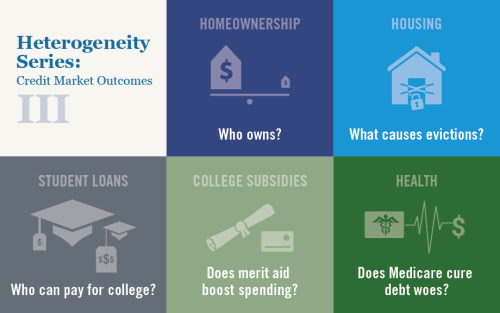Car Prices Drive Up Borrowing

Total household debt increased substantially during the second year of the COVID-19 pandemic, with a $1.02 trillion increase in aggregate debt balances, according to the Quarterly Report on Household Debt and Credit for the fourth quarter of 2021 from the New York Fed’s Center for Microeconomic Data. The yearly increase was the largest seen since 2007 in nominal terms and was boosted by particularly robust growth in mortgage balances, which grew by nearly $900 billion through 2021. Credit card balances, which have followed an unusual path during the pandemic, saw a large seasonal increase in the fourth quarter but remain well below pre-pandemic levels. And student loan balances increased only modestly through 2021 due to lower enrollment and also due to administrative forbearance on federal student loans—the smallest annual increase we’ve seen since 2004. Outstanding auto loan balances grew in 2021 by $84 billion. The $734 billion in newly opened auto loans through the year was the largest volume we’ve seen in our data.
Credit Card Trends Begin to Normalize after Pandemic Paydown

Today, the New York Fed’s Center for Microeconomic Data released its Quarterly Report on Household Debt and Credit for the third quarter of 2021. Overall debt balances increased, bolstered primarily by a sizeable increase in mortgage balances, and for the second consecutive quarter, an increase in credit card balances. The changes in credit card balances in the second and third quarters of 2021 are remarkable since they appear to be a return to the normal seasonal patterns in balances. In a Liberty Street Economics post earlier this year we wrote about some demographic variation in these balance changes and the likely role of stimulus checks and forbearance programs in helping borrowers pay down expensive revolving debt balances. Here, we’ll take a fresh look at credit card balances and at the dynamics behind new and closing credit card accounts and limit changes, to examine how credit access and usage continue to evolve. The Quarterly Report and this analysis are based on our Consumer Credit Panel, which is itself based on Equifax credit data.
Forbearance Participation Declines as Programs’ End Nears

The Federal Reserve Bank of New York’s Center for Microeconomic Data today released its Quarterly Report on Household Debt and Credit for the second quarter of 2021. It showed that overall household debt increased at a quick clip over the period, with a $322 billion increase in balances, boosted primarily by a 2.8 percent increase in mortgage balances, a 2.2 percent increase in credit card balances, and a 2.4 percent increase in auto balances. Mortgage balances in particular were boosted by a record $1.22 trillion in newly originated loans. Although some borrowers are originating new loans, struggling borrowers remain in forbearance programs, where they are pausing repayment on their debts and creating an additional upward pressure on outstanding mortgage balances.
Consumers Expect Modest Increase in Spending Growth and Continued Government Support
How Widespread Is the Impact of the COVID‑19 Outbreak on Consumer Expectations?

In a recent blog post, we showed that consumer expectations worsened sharply through March, as the COVID-19 epidemic spread and affected a growing part of the U.S. population. In this post, we document how much of this deterioration can be directly attributed to the coronavirus outbreak. We then explore how the effect of the outbreak has varied over time and across demographic groups.
Coronavirus Outbreak Sends Consumer Expectations Plummeting
The March Survey of Consumer Expectations, which was fielded between March 2 and 31, records a substantial deterioration in financial and economic expectations, including sharp declines in household income and spending growth expectations.
Searching for Higher Job Satisfaction
Charging into Adulthood: Credit Cards and Young Consumers

The New York Fed’s Center for Microeconomic Data today released the Quarterly Report on Household Debt and Credit for the fourth quarter of 2019. Total household debt balances grew by $193 billion in the fourth quarter, marking a $601 billion increase in household debt balances in 2019, the largest annual gain since 2007. The main driver was a $433 billion annual upswing in mortgage balances, also the largest since 2007.














 RSS Feed
RSS Feed Follow Liberty Street Economics
Follow Liberty Street Economics